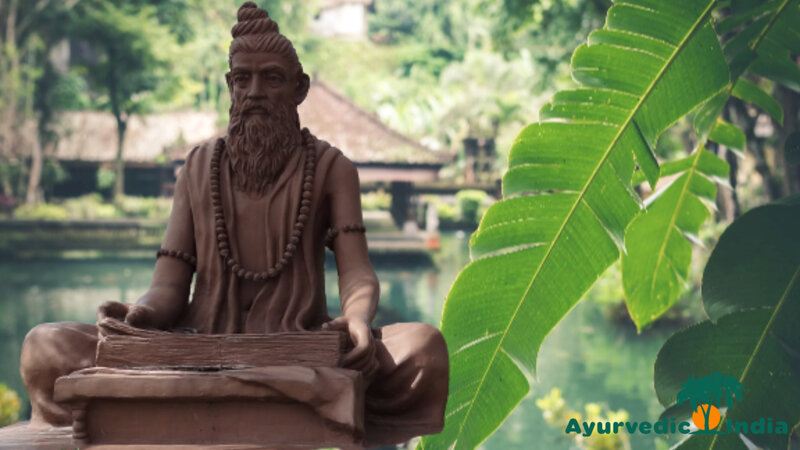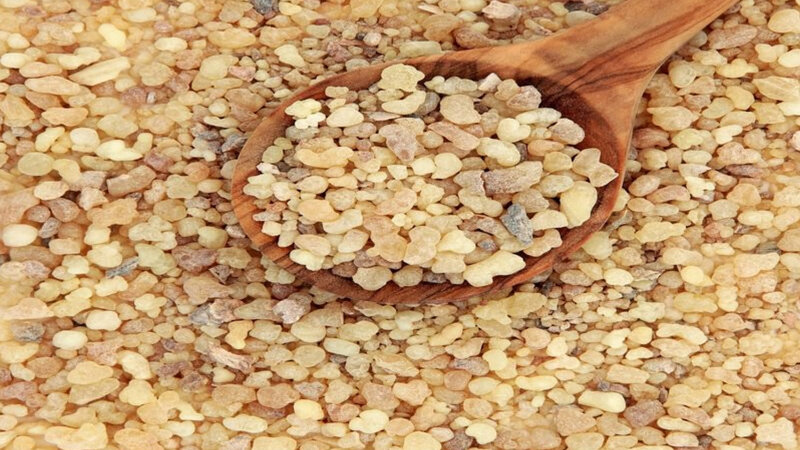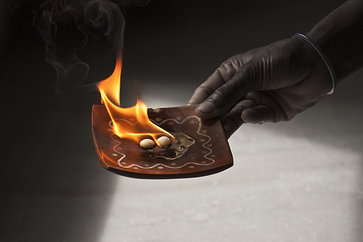Who Is Called The Father Of Ayurveda?
The ancient Indian medical science, Ayurveda, holds a celebrated status worldwide for its holistic approach to health and well-being. Despite its global recognition, the founder and father of Ayurveda, Maharishi Charaka, remains relatively unknown to many. 
Historical records indicate that Maharishi Charaka lived during a significant period, approximately from 100 BCE (Before Common Era) to around 150-200 BCE. However, the exact date of his life and works continues to elude us, leaving some aspects of his biography shrouded in mystery.
The historical accounts of Maharishi Charaka’s life are not definitive, and the details available are often pieced together from ancient texts and oral traditions passed down through generations. This lack of precise dating adds an air of intrigue to Charaka’s legacy, contributing to the aura surrounding his persona.
Despite the uncertainties surrounding his timeline, Maharishi Charaka’s contributions to Ayurveda are undisputed. He authored the renowned Ayurvedic text, the Charaka Samhita, which stands as one of the oldest and most authoritative treatises in the field.
This comprehensive work covers a wide range of medical knowledge, including anatomy, physiology, diagnosis, treatment methods, and principles of preventive medicine.
The Charaka Samhita espouses a holistic approach to health, emphasizing the interconnectedness of the body, mind, and spirit. It provides detailed insights into the diagnosis and management of diseases, incorporating principles of herbal medicine, dietary guidelines, lifestyle recommendations, and ethical medical practice.
Maharishi Charaka’s teachings revolutionized the field of medicine during his time, establishing Ayurveda as a well-structured and organized system of healing.
It is fascinating to note that Maharishi Charaka’s contributions extend beyond the realms of Ayurvedic medicine. His work also encompasses broader aspects of human well-being, including psychology, ethics, and the interplay between humans and their environment.
His deep understanding of the human condition and the intricate balance required for optimal health permeates throughout his teachings.
The timeless wisdom contained within the Charaka Samhita continues to inspire practitioners, researchers, and enthusiasts of Ayurveda. Maharishi Charaka’s profound knowledge and insights into the human body, diseases, and the art of healing have left an indelible mark on the world of medicine.
His emphasis on personalized care, preventive medicine, and the importance of the doctor-patient relationship resonates with contemporary healthcare approaches.
While the exact chronology of Maharishi Charaka’s life remains elusive, his contributions to Ayurveda are undeniably significant. His teachings have not only shaped the ancient Indian medical system but have also influenced the development of various traditional medicine practices across the globe.
As we continue to delve into the depths of Ayurveda, Maharishi Charaka’s legacy stands as a testament to the profound wisdom that continues to guide and inspire practitioners of this ancient healing science.
Father Of Ayurveda
The father of Ayurveda is a historical figure named Charaka, who is revered as one of the most important contributors to the ancient Indian medical system. Here are some points about Charaka and his significance in Ayurveda:
1. Charaka is widely regarded as the “Father of Ayurveda,” a title bestowed upon him due to his pioneering contributions to the field.
2. He lived during the ancient Indian period known as the Vedic era, which dates back to approximately 1000 BCE.
3. Charaka is believed to have been born in the region that is now modern-day India.
4. He authored the Charaka Samhita, an influential and comprehensive treatise on Ayurveda, which is one of the oldest and most revered texts in the field.
5. The Charaka Samhita covers a wide range of topics, including anatomy, physiology, pathology, diagnosis, and treatment methods.
6. The text emphasizes the importance of holistic healthcare, addressing physical, mental, and spiritual well-being.
7. Charaka’s work played a significant role in establishing Ayurveda as a distinct and organized system of medicine.
8. He categorized diseases into eight major branches, including internal medicine, pediatrics, toxicology, and surgery.
9. Charaka emphasized the role of diet, lifestyle, and herbs in promoting health and preventing diseases.
10. He classified herbs based on their medicinal properties and advocated for their use in treating various ailments.
11. Charaka introduced the concept of “tri dosha,” which refers to the three fundamental energies or principles (Vata, Pitta, and Kapha) governing the human body.
12. According to Charaka, an imbalance in the doshas leads to disease, and Ayurvedic treatments aim to restore balance and harmony.
13. He emphasized the importance of individualized medicine, recognizing that each person has a unique constitution and requires personalized treatments.
14. Charaka contributed to the development of surgical techniques in Ayurveda, including procedures for removing kidney stones and cataracts.
15. He advocated for ethical medical practice and emphasized the need for compassion, honesty, and integrity in healthcare.
16. Charaka’s teachings influenced subsequent generations of Ayurvedic physicians and scholars.
17. His work had a profound impact on the development of traditional medicine not only in India but also in other parts of Asia.
18. Charaka’s principles and concepts continue to be fundamental to the practice of Ayurveda to this day.
19. His legacy is celebrated through the observance of Charaka Jayanti, an annual event that honors his contributions and promotes Ayurvedic knowledge.
20. Charaka’s stature as the father of Ayurveda is a testament to his invaluable contributions to the field and his enduring influence on the practice of traditional medicine.
21. Charaka’s approach to Ayurveda emphasized prevention and the maintenance of health. He emphasized the importance of a balanced lifestyle, including proper nutrition, exercise, and stress management.
22. He stressed the significance of understanding the patient as a whole, taking into account their physical, mental, and emotional well-being when diagnosing and treating diseases.
23. Charaka’s classification of diseases based on their etiology (cause) and prognosis (outcome) helped in understanding the various factors that contribute to illness and guided treatment approaches accordingly.
24. He emphasized the importance of clinical observation and gathering accurate patient history to determine the root cause of diseases and formulate appropriate treatment plans.
25. Charaka introduced the concept of “Rasayana,” which focuses on rejuvenation and longevity. Rasayana therapies aim to promote overall well-being and slow down the aging process.
26. He made significant contributions to the field of toxicology, detailing the identification and treatment of various toxic substances and their effects on the human body.
27. Charaka’s teachings on women’s health covered topics such as pregnancy, childbirth, and postnatal care, providing valuable guidance for maintaining the health of both mother and child.
28. He recognized the importance of mental health and emphasized the role of Ayurveda in treating mental disorders through a combination of lifestyle modifications, herbs, and therapies.
29. Charaka’s work laid the foundation for the Ayurvedic concept of “Panchakarma,” a set of purification and detoxification therapies aimed at eliminating toxins and restoring balance in the body.
30. The principles and concepts presented by Charaka in the Charaka Samhita continue to be studied and taught in Ayurvedic colleges and universities worldwide, ensuring the preservation and dissemination of his knowledge.
31. Charaka emphasized the importance of a strong doctor-patient relationship based on trust, empathy, and effective communication. He believed that understanding the patient’s perspective is crucial for providing effective healthcare.
32. He advocated for a comprehensive approach to healthcare that includes not only physical well-being but also mental, emotional, and spiritual aspects of the individual.
33. Charaka’s work influenced the development of other traditional medical systems, such as Traditional Chinese Medicine and Unani medicine, as his ideas traveled and were exchanged across ancient trade routes.
34. He emphasized the role of ethical conduct and professional ethics among physicians, promoting a code of conduct that prioritizes the welfare of patients and ethical decision-making.
35. Charaka’s teachings highlighted the importance of proper hygiene and cleanliness as preventive measures against diseases, laying the foundation for public health principles in Ayurveda.
36. He recognized the interconnectedness between humans and their environment, emphasizing the need for individuals to live in harmony with nature to achieve optimal health.
37. Charaka’s contributions extended beyond medicine to include a deep understanding of human psychology and the role of emotions in health and well-being.
38. He documented the use of various minerals and metals in Ayurvedic formulations, contributing to the development of the branch of Ayurveda known as Rasa Shastra (medicinal chemistry).
39. Charaka’s approach to Ayurvedic education emphasized practical training and hands-on experience, recognizing the importance of apprenticeship and clinical practice for developing skilled practitioners.
40. His teachings continue to inspire research and innovation in Ayurveda, with modern scholars and practitioners building upon his work to further advance the field.
Charaka’s immense contributions to Ayurveda have not only shaped the practice of traditional medicine but have also influenced healthcare systems worldwide, leaving a lasting legacy that continues to benefit millions of people.


























